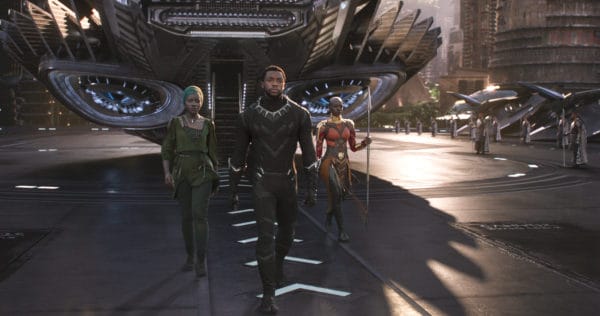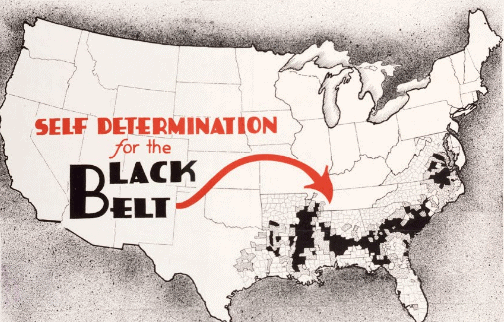Saving Elie Mystal from White Society
Gregory Hood, American Renaissance, March 31, 2021
I’m not ready to reenter white society. A weekend trip to CVS really drove that home for me. I’m not ready to put on my white people armor, just to go to the store.
My latest in @thenation https://t.co/dOtGjX9Gnl— Elie Mystal (@ElieNYC) March 23, 2021
The Nation’s Elie Mystal is one of the country’s most widely read journalists. He recently wrote: “[O]ne of the principal benefits of the pandemic is how I’ve been able to exclude racism and whiteness generally from my day-to-day life.” Though he occasionally must worry about white people “on Zoom,” the good news is that “white people aren’t in my face all the time.” Instead, he lives in what he calls a “technically advanced, globally isolated” version of “Wakanda” where he “can pick and choose when and how often to interact with white people.”

TITLE: Black Panther PLOT: T’Challa, after the death of his father, the King of Wakanda, returns home to the isolated, technologically advanced African nation to succeed to the throne and take his rightful place as king. (Credit Image: © Marvel Studios / Entertainment Pictures / ZUMAPRESS.com)
Professor Mystal enjoys a lucrative career complaining about white people. Even though the leading institutions in our society in academia (Harvard and Harvard Law), journalism (the New York Times), and media (MSNBC and Fox News) have all given him a platform, he still seems to believe he is oppressed by “systemic racism.” If he truly does feel oppressed even after receiving all these benefits, what more can we do?
“I’m not ready to go back to accepting that, in a diverse and pluralistic society, some white people are allowed to just impose their implicit biases on the world, and the rest of us have to suck it up,” he said in his recent column. The basis for this sweeping conclusion was an incident he witnessed at a CVS. An older white woman pulled up to the store and shouted at a black teenaged girl, “Is this where you get the vaccines?” It’s not clear from the story whether the black girl worked at the store.
The Black teenager ignored the woman (as I teach my kids to do when strangers are shouting at them), but the white lady insisted: “I said, is this where you get the vaccines?” At this point, the teenager did this elaborate pantomime of looking behind her, a very clear “she must not be talking to me, a person just standing outside and messing with my phone” move. This, apparently, really pissed off the white woman who then yelled at the top of her voice: “IS THIS WHERE YOU GET THE VACCINES?” By this point, a small traffic jam had piled up behind her, and the cars started honking. She yelped in disgust—“the service!”—and drove off.
That’s it. That’s the story.
Mr. Mystal dives deeply into the mysteries of his psyche because of this trivial incident. He feels shame because he hadn’t been quick enough to show “solidarity” with the young black, possibly because he had been “living in my white-free castle for a year.” He asks, “Was I part of the permissive culture that has allowed that white lady to exist?”
The idea that he has the power to determine whether someone can “exist” sounds almost threatening to me. The anecdote also seems like an example of racial projection. Nothing suggests that this white woman thought that the young black woman’s race mattered at all. Data show that few whites see their race or ethnicity as central to their identity, in contrast to about 75 percent of blacks. Polls also suggest that Republicans and conservatives are the least likely to pursue vaccination. It’s not much to go off of, but if I had to bet, I’d guess the woman demanding a shot was liberal.
However, Mr. Mystal saw race. Indeed, this small incident led him to a sweeping conclusion that he isn’t capable of re-entering a society integrated with whites without feeling stress and anxiety. He feels this way even though the government, academy, and media give him preferential treatment because of his race.
Most whites don’t have racial consciousness. The same system that rewards Mr. Mystal punishes white advocates. However, many whites become racially conscious anyway, usually as a result of a long series of frustrating, stressful, or even dangerous encounters with non-whites. Countless readers have told us how they became race realists.
Most initially wanted to believe in a colorblind world but were forced into white identity because of the way non-whites treated them. Some examples:
- White Boy in a Black School, by A.J. Clinton, November 7, 2020
- Race in the French Foreign Legion, by Jason R. Harvey, April 25, 2020
- A White Woman Learns About Race, by Stefania Mówi, March 27, 2021
- The Joys of Forced Integration, by Will Kane, January 23, 2021
- How I Became a “Racist,” by Julian Soral, January 9, 2021
I don’t begrudge Mr. Mystal’s mini-Wakanda. I’d prefer it if he and his co-ethnics would build it on a larger scale and leave the rest of us alone. On average, blacks commit more crime, use more welfare, and perform less well in school than whites. Whites would be fine without blacks. It’s less clear whether blacks would be fine without whites.

Historically, some have proposed that America’s “Black Belt” become its own country.
Mr. Mystal may offer us a way out. If he truly is this disturbed by casual interactions with whites, perhaps we can simply separate. This isn’t an extreme idea. Minnesota Attorney General Keith Ellison, who is currently prosecuting Derek Chauvin, proposed a separate black homeland early in his career. Of course, Mr. Ellison, like Malcolm X before him, quickly realized that it’s easier to grift off whites than to build a separate nation.
Is Mr. Mystal more sincere? After all, practically any amount of money or territory would be worth it for whites to go our own way. Only then can Mr. Mystal go to the CVS without an existential crisis. Near the end of his column, Mr. Mystal fantasizes about giving whites fake directions to something near “Marcus Garvey Park.” If the United States had subsidized Mr. Garvey and helped him carry out his plan instead of imprisoning him, we’d be much better off.
What do you say Mr. Mystal? Name your terms. Let’s realize Marcus Garvey’s dream. You’ll never have to worry about putting on your “white people armor” again. You can always be the “default” skin color. You can have your Wakanda. Of course, it will also mean you no longer have us to blame. Let’s see if you really want to be free, or whether you just want to be paid to complain about us.















